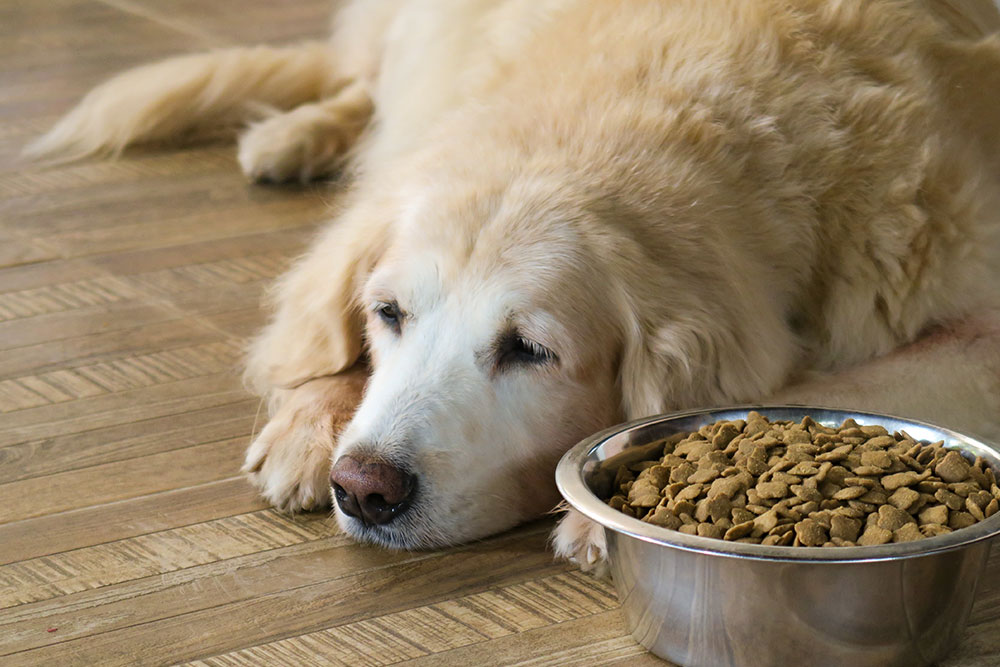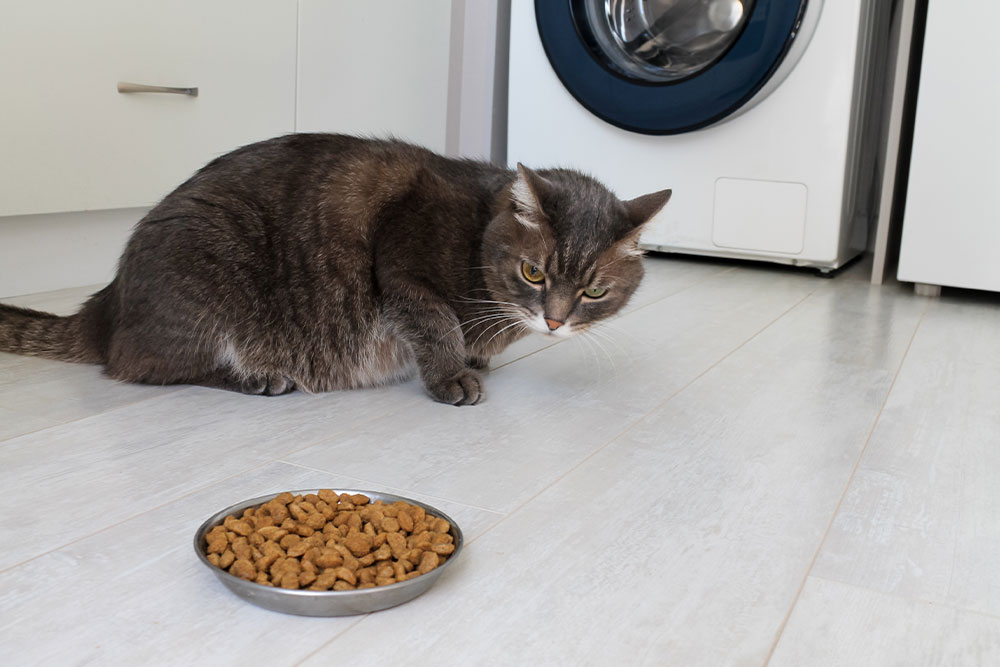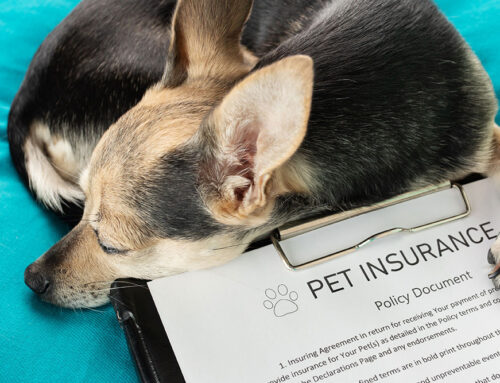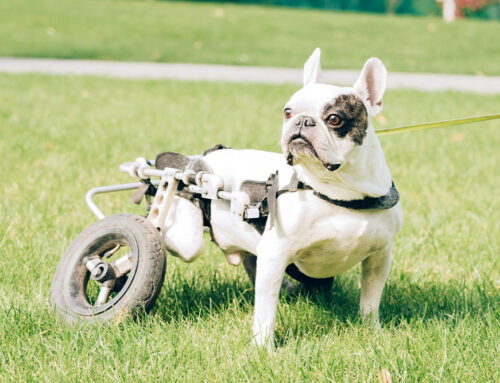When to Worry if Your Pet Stops Eating: Understanding Appetite Loss
At Star of Texas Veterinary Hospital in Austin, Texas, we know how concerning it can be when a pet suddenly loses interest in food. Mealtime is usually one of the happiest parts of a dog’s or cat’s day, so it’s easy to notice when something feels off. A skipped meal now and then may be nothing to worry about, but when your pet consistently refuses food, it could be a sign of something more serious. Understanding when to monitor the situation and when to seek veterinary care is key to protecting your pet’s health and well-being.
Understanding Different Types of Appetite Loss in Pets
In veterinary care, decreased appetite is called hyporexia, while total refusal to eat is known as anorexia. While missing one meal here and there is normal for many pets, going without food for more than 24 hours often signals an underlying issue that deserves attention.
Food fuels energy, healing, and immunity. Unlike people, pets can’t say they feel nauseous or uncomfortable, so changes in appetite are often the first clue that something isn’t right.
Why Pets Stop Eating
Sometimes, appetite loss is simple and temporary. Other times, it means a medical issue needs to be addressed.
Medical Causes of Appetite Loss in Pets
- Dental Disease: Broken teeth, infected gums, or tumors make chewing painful.
- Digestive Upset: Parasites, nausea, or inflammatory bowel disease can lead to food avoidance.
- Organ Dysfunction: Kidney or liver disease can cause nausea and reduce hunger. Cats, in particular, risk hepatic lipidosis if they stop eating for even a few days.
- Infections: Bacterial, viral, or fungal infections drain energy.
- Pain Elsewhere: Arthritis or injuries may make it uncomfortable to bend down to eat.
Non-Medical Causes of Appetite Loss in Pets
- Stress or Anxiety: New surroundings, visitors, or loud noises can disrupt appetite.
- Diet Changes: Switching food brands too quickly can lead to pet food refusal.
- Food Quality: Spoiled or stale pet food can put pets off their meals.
Why Appetite Loss in Pets Matters
Skipped meals affect more than just hunger. Appetite loss can also lead to:
- Dehydration
- Weakness and lethargy in dogs and cats
- Weight loss and muscle wasting
- Weakened immunity
Cats are especially sensitive to appetite loss. Not eating for even a short time can quickly become life-threatening.
Pet Appetite Loss Red Flags
If your pet is showing any of the following signs, it may be time to make an appointment to determine what’s causing their appetite loss:
- Sniffing food but refusing to eat
- Dropping food, chewing slowly, or drooling (with cats and dogs)
- Frequent diarrhea or vomiting
- Noticeable weight loss or muscle wasting
- Other changes in behavior, such as hiding or sleeping more
A simple journal of meals and symptoms can help our veterinary team diagnose issues more effectively.
When Is Appetite Loss in Pets an Emergency?
Skipped meals from stress or excitement are common. But serious problems need quick action. Contact us or an after-hours vet immediately for an emergency appointment if:
- A pet refuses food for 24 hours or longer
- Vomiting, bloating, or sudden weakness occurs
- Poisoning or a blockage is suspected
What to Expect: Your Pet’s Vet Appointment
At Star of Texas Veterinary Hospital, our team will work hard to identify the cause of your pet’s appetite loss. To help us get a better understanding of your pet’s needs, bring the following information to your pet’s appointment:
- Food brands, treats, and any supplements used
- Notes about changes in appetite
- A stool sample if possible
- Photos or videos of eating behavior
During Your Pet’s Appointment
At our clinic, we offer the following services to help treat unexplained appetite loss in pets:
- Physical Exam: Teeth, gums, abdomen, hydration, and body weight are checked.
- Blood Tests: Helps check your pet’s organ function and screens for infections.
- Urine and Stool Tests: Parasites or digestive issues can be ruled out.
- Imaging: X-rays or ultrasound help find blockages or hidden problems.
- Exploratory Surgery: Surgeries for appetite loss are rare, but sometimes necessary.
When it’s time to take your pet home, we will also provide you with detailed at-home pet care information so you can continue to monitor your pet’s health.
Treatment for Appetite Loss in Pets
Treatment depends on the cause of your pet’s appetite loss and might include:
- Medication for infections or chronic conditions
- Pain relief for dental or joint pain
- Appetite stimulants
- IV fluids for dehydration
- Assisted feeding if needed
- Dietary adjustments with help from a pet calorie calculator
- Follow-ups to ensure recovery stays on track
How to Help Prevent Appetite Loss in Pets
While some appetite loss cases can’t be prevented, you can help keep your pet healthy by maintaining the following habits:
- Keep feeding times consistent
- Make diet changes gradually
- Brush teeth regularly
- Store pet food properly
- Use only vet-approved dietary supplements
- Keep up with your pet’s wellness checkups
FAQs
Could my pet just be picky?
Maybe, but medical causes should be ruled out first.
Is drinking water enough?
Hydration is good, but pets still need calories and nutrients.
How long is too long without eating?
No more than 24 hours; less for cats.
Star of Texas Veterinary Hospital is Here to Help
Watching a pet ignore food is stressful. But no one has to figure it out alone. Star of Texas Veterinary Hospital helps pet families find answers and build realistic care plans.
If you’re concerned about your pet’s appetite, contact us or request an appointment. Your pet can get back to enjoying every meal, and you can feel confident you’re doing what’s best for their health.







